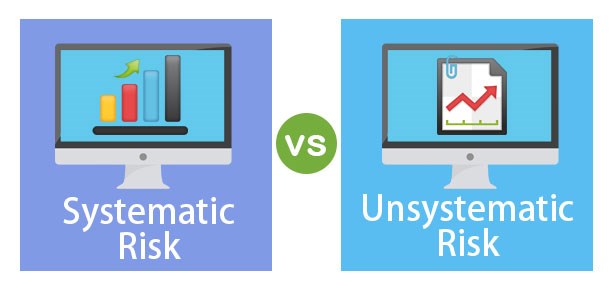
Understanding Systematic and Unsystematic Risks for Startups
Understanding Systematic and Unsystematic Risks for Startups https://theraise.eu/wp-content/uploads/2024/04/Systematic-Risk-vs-Unsystematic-Risk.jpg 612 290 RAISE fosters startup growth and scale-up within and across Europe RAISE fosters startup growth and scale-up within and across Europe https://theraise.eu/wp-content/uploads/2024/04/Systematic-Risk-vs-Unsystematic-Risk.jpgStartups are the lifeblood of innovation and economic growth, but they also face a myriad of risks that can threaten their survival. Among these risks are systematic and unsystematic risks, two fundamental categories that every entrepreneur should comprehend to navigate the volatile landscape of business.
Systematic Risks
Systematic risks, also known as market risks or undiversifiable risks, are those inherent to the entire market or economy. These risks affect all businesses, regardless of their specific industry or operational decisions. They are beyond the control of individual companies and are typically influenced by macroeconomic factors, geopolitical events, and systemic trends.
For startups, systematic risks can manifest in various forms:
- Economic Recession: During economic downturns, consumer spending decreases, investors become more cautious, and credit becomes tighter. Startups may struggle to secure funding, experience a decline in demand for their products or services, and face heightened competition as established companies tighten their budgets.
- Market Volatility: Fluctuations in stock prices, interest rates, and currency exchange rates can have a significant impact on startups, particularly those operating in sectors sensitive to market movements such as technology or finance. Sudden shifts in market sentiment can disrupt business operations, impede expansion plans, and erode investor confidence.
- Regulatory Changes: Changes in government regulations and policies can create uncertainty and compliance challenges for startups. Whether it’s new data privacy laws, industry-specific regulations, or tax reforms, startups must adapt quickly to remain compliant and avoid penalties that could drain resources and stifle growth.
- Global Events: Geopolitical tensions, natural disasters, and pandemics can reverberate throughout the business world, disrupting supply chains, causing supply shortages, and altering consumer behavior. Startups with international operations or dependencies on global markets are particularly vulnerable to the ripple effects of such events.
Navigating systematic risks requires startups to adopt a proactive approach to risk management. Strategies such as diversification, maintaining adequate liquidity, and closely monitoring macroeconomic indicators can help mitigate the impact of systemic threats on business operations and financial performance.
Unsystematic Risks
Unlike systematic risks, unsystematic risks, also known as specific risks or diversifiable risks, are unique to individual companies or industries. These risks stem from factors internal to the organization or its operating environment and can often be mitigated through strategic decision-making and risk management practices.
Some common sources of unsystematic risks for startups include:
- Management Risks: Poor leadership, inadequate strategic planning, and ineffective decision-making can undermine the success of a startup. Founders must possess strong leadership skills, surround themselves with a capable management team, and implement robust corporate governance practices to mitigate management-related risks.
- Operational Risks: Operational inefficiencies, supply chain disruptions, and technology failures can disrupt production processes, hinder delivery timelines, and tarnish the reputation of a startup. Implementing robust operational procedures, investing in technology infrastructure, and fostering supplier relationships built on trust and transparency can help mitigate these risks.
- Competitive Risks: Startups often operate in fiercely competitive markets where incumbents wield significant resources and brand recognition. Failure to differentiate products or services, anticipate competitor actions, or innovate can leave startups vulnerable to losing market share and struggling to gain traction.
- Financial Risks: Insufficient capital, poor cash flow management, and overreliance on debt financing can expose startups to financial distress and bankruptcy. Maintaining a healthy balance sheet, conserving cash reserves, and exploring alternative sources of funding such as equity financing or strategic partnerships can enhance financial resilience.
While unsystematic risks are inherent to the entrepreneurial journey, startups can employ various risk mitigation strategies to safeguard against potential threats. Conducting thorough risk assessments, developing contingency plans, and fostering a culture of innovation and adaptability are essential components of effective risk management for startups.
Startups face a complex array of systematic and unsystematic risks that can impact their viability and success. By understanding the nature of these risks and implementing proactive risk management strategies, entrepreneurs can navigate uncertainty with confidence and increase their chances of building sustainable and resilient businesses in an ever-evolving marketplace.
Photo via EDUCBA
- Posted In:
- Startup News




